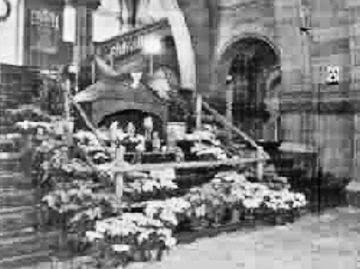The Establishment Clause
of the First Amendment says, “Congress shall make no law respecting an
establishment of religion.” As I explained in my February 27, 2014 post, the restriction isn’t limited to Congress but
includes state and local governments.
But what does the clause
mean? Thousands of books have tried to answer the question, and I don’t have
the space in this blog post to add my thoughts. For our purposes, it is enough
to say that the Supreme Court’s decisions make it clear that governments cannot
endorse or favor any particular religion. They can, however, allow religious
speech in a governmental setting as long as all religions (and atheism) are
treated equally. The cases also make it clear that context matters.
This is the main
distinction between the various cases involving Christmas displays. In County of Allegheny v. ACLU, 492 U.S.
573 (1989), the Supreme Court even
reached opposite conclusions in the same case. There were, however, two
separate displays, and the distinctions directed the results. These pictures
were printed with the Supreme Court opinion, and they are not good quality when
reproduced here. Nonetheless, they may help you understand the general
impression that each conveyed.
The first display
involved a large crèche displayed prominently on the Grand Staircase in the
county building. Although it was surrounded by poinsettias and small
evergreens, they tended to highlight the crèche rather than distract from it.
The second display was
one block away on city land. The centerpiece was a large Christmas tree flanked
by a menorah on one side and a sign on the other that identified the display as
a “Salute to Liberty.”
Four justices voted that
both the manager scene and the menorah violated the Establishment Clause, and
four justices voted that neither did. Justice Blackman was the swing vote that
split the decision.
According to Blackman,
the first display violated the Establishment Clause because the crèche is
clearly a religious symbol, with the Nativity being a crucial part of the
Christian message. For him, the context made it clear that the county was
endorsing that message.
He reached a different
conclusion for the second display. He dismissed the Christmas tree as a
secularized representation of Christmas but had a harder time with the menorah.
Even so, he felt that the menorah had taken on some secular implications as
well. The combination of these two symbols with the “Salute to Liberty” theme
swayed him to vote that the city display was constitutional.
Today the courts seem to
agree that even a manger scene is acceptable if it is provided by private
individuals or organizations and is part of a larger display. In other words,
religious speech is acceptable on government property if it is allowed rather
than mandated and if all religions (and atheists) are given equal treatment.
This is true in schools as well as in the public square.
Next month we will
discuss the government’s ability to restrict your religious speech.
__________
Kathryn Page Camp is a
licensed attorney and full-time writer. Her most recent book, Writers in Wonderland: Keeping Your Words
Legal (KP/PK Publishing 2013), is a Kirkus’
Indie Books of the Month Selection. Kathryn is also the author of In God We Trust: How the Supreme Court’s
First Amendment Decisions Affect Organized Religion (FaithWalk Publishing
2006) and numerous articles. You can learn more about Kathryn at
www.kathrynpagecamp.com.







.jpg)
